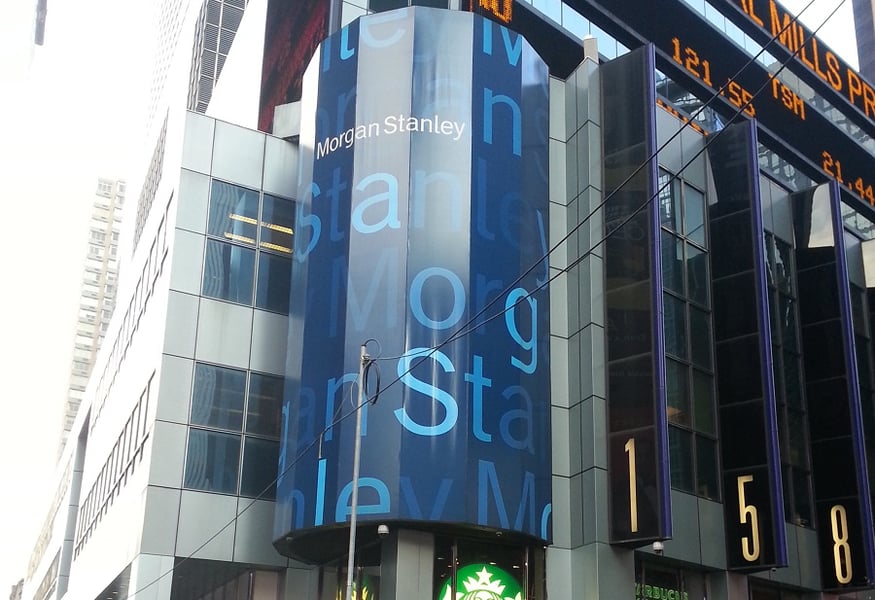Morgan Stanley is developing a first-of-its-kind plan to sell data about which financial advisers are selling exchange-traded funds — and which ones they are selling — to ETF sponsors, according to several people briefed on the plans.
The nation's largest wealth manager by adviser headcount has told manufacturers of exchange-traded funds that it plans to start the program later this year, according to people with first-hand knowledge of those conversations.
Those people spoke on condition of anonymity because they are not authorized to discuss the plans. Morgan Stanley spokeswoman, Christine Jockle, did not respond to phone calls and emails seeking comment.
New York-based Morgan Stanley's retail brokerage unit includes 16,000 advisers.
“It’s a big deal,” said Matt Hougan, president of ETF.com. “Being able to have great transparency into who’s buying and selling ETFs has been the holy grail for the ETF industry for years.”
Mr. Hougan said the program could lead to other broker-dealers making similar arrangements with fund companies. But he said the program could also, for better or worse, increase the marketing push around ETFs.
“ETFs have been bought and not sold, and it fosters this sense of independence,” he said. “This breaks that wall down a little bit further.”
LITTLE INFO
Compared with mutual funds, managers of ETFs have little information about the advisers selling their products. Unlike mutual funds, ETF companies sell their shares exclusively to a small club of Wall Street firms. Individual investors buy the shares in a secondary market.
That creates a veil between ETF providers and their customers, which some fund sales managers say puts them at a disadvantage to their counterparts at mutual fund companies.
Knowing which advisers are selling ETFs, and what they are selling, will allow ETF sponsors to better target their own sales efforts.
Mutual funds held $13 trillion in assets at the end of January, nearly seven times the assets held in ETFs, according to the Investment Company Institute, a trade group.
Fund companies typically purchase information on advisers from third-party data brokers, such as Broadridge Financial Solutions Inc. and Strategic Insight.
But broker-dealers might be able to provide more information on the practices of individual advisers, and to increase the revenue they can command for selling ETFs.
(More: The "Hunger Games" parody video Morgan doesn't want you to see)
Those funds are generally low-cost, aiming to duplicate the returns of a basket of companies. They often also lack the distribution fees attending other investment products.
The largest firms selling the funds in the U.S. are BlackRock Inc.'s iShares unit, the Vanguard Group Inc. and “SPDR” manager State Street Corp.







